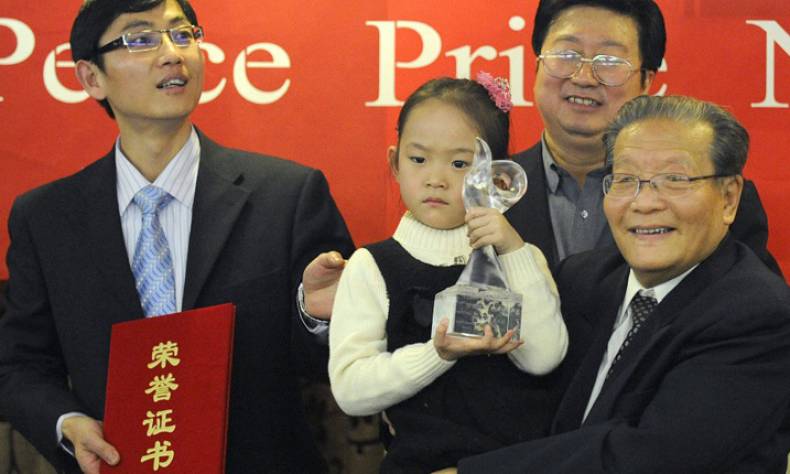
Confucius Peace Prize Provokes Confusion
On September 28th, Zimbabwean President and current Chair of the African Union, Robert Mugabe, was declared the honourable recipient of the Confucius Peace Prize. To put it mildly, the news has managed to raise an eyebrow or two. However, to the dismay of many, the winner seems to have actually declined the award – a tasteful golden figurine of Mr Confucius himself – as well as the 500,000 yuan (around 78,910 US Dollars) cash prize.
The surprising turn of events has left us with only one question: why was the prize rejected?
According to Liu Zhiqin, whom The Global Times describes as a ‘special consultant’ to the judging panel of the Confucius Peace Prize, the Zimbabwean leader may have refused the award due to ‘political pressure’ – arguably inflicted by the Western media or Zimbabwean political opponents.
However, it seems that Mugabe has refused the award after discovering it actually bears no relation to the Chinese government. According to The Guardian, Mugabe’s his spokesman George Charamba stated “The Chinese government informed the Zimbabwean government it was not associated with the conferring organization. The matter ended there as far as government and the president were concerned.”
Instead, the Confucius Peace Prize – which seems fairly unknown amongst most Chinese – was founded by a group of scholars in 2010 as a riposte to the Nobel Peace Prize in order to promote Eastern interpretation of peace. The organisation behind the Confucius Peace Prize is called the China International Peace Research Center, and is based in Hong Kong.
Thus, as the Confucius Peace Prize is not directly related to the Chinese government, many former winning candidates- including Vladimir Putin ( 2012), Fidel Castro (2014)- have also shunned the award. In fact, when the Taiwanese politician, Lien Chan, also turned down the award in 2010, a “scared-looking girl” was sent pick up the cash prize in his place ( pictured above). Lai Shin-yuan, the chair of the Taiwan Mainland Affairs Council, stated that “As far as we know it is an unofficial prize. We don’t plan to make any comment on it […]But we do find it amusing.”
Given such cringe-worthy episodes, it’s not hard to see why the China Communist Party’s Ministry of Culture has repeatedly denied any connection with the award and even endeavored to attempted to prohibit the award in 2011.
On a more important note, not only may the award be a source of embarrassment but it also could have a negative impact on how other nations perceive China. Whilst many Western headlines have ridiculed China for bestowing Mr Mugabe with a ‘Peace Prize,’ with mocking headlines such as “The World Didn’t Seem to Notice That China Gave Robert Mugabe a Peace Prize” (Vice News), “China’s dishonor roll, featuring Robert Mugabe” ( Daily News) and “Zimbabwean strongman Robert Mugabe wins China’s version of the Nobel Peace Prize” (The Washington Post) , many of the same publications have also failed to mention that the organization responsible for the Confucius Peace Prize, China International Peace Research Center, is not actually affiliated with the Chinese government.
By failing to clearly distinguish between “China” and the “China International Peace Research Center,” the above publications create the dangerous impression that the award committee’s views reflect on that of the Chinese government or the nation as a whole. This error only serves to widen the gulf of misunderstanding between China and the West. As The Diplomat points out“ The conversation between China and the West on human rights is important and it is ongoing, but misconceiving something like the Confucius Peace Prize as emblematic of the Chinese perspective on human rights is immensely unproductive.”
 Facebook
Facebook
 Twitter
Twitter
 Linkedin
Linkedin
 Google +
Google +




Well, that clears things up. Thanks, so informative!